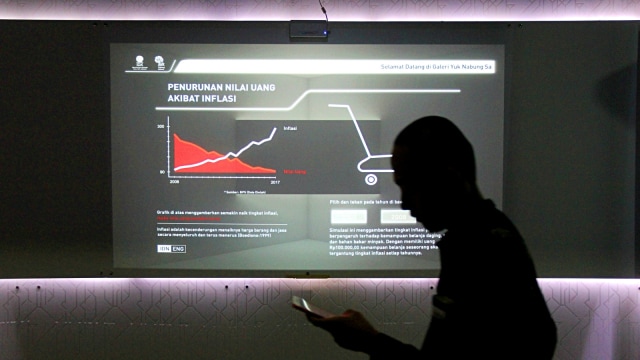Tentang KamiPedoman Media SiberKetentuan & Kebijakan PrivasiPanduan KomunitasPeringkat PenulisCara Menulis di kumparanInformasi Kerja SamaBantuanIklanKarir
2025 © PT Dynamo Media Network
Version 1.103.0
Konten dari Pengguna
Budget Reform in Indonesia and the Lesson-Learned from Finland
14 Februari 2021 20:34 WIB
Tulisan dari Boy Anugerah tidak mewakili pandangan dari redaksi kumparan

ADVERTISEMENT
To understand the concept of budget reform, we need to understand first the importance of budget in the state financial system. Budget is defined as the most fundamental and important documents of governments. It is the key program policy document in that governments establish their policy priorities in concrete terms in the budget through the allocation of funding. To implement the budget in the state financial system, the government should put the budget into the system, so-called budgeting system.
ADVERTISEMENT
This kind of system has several objectives such as to instill and maintain aggregate fiscal discipline, to allocate and reallocate resources in accordance with changing government priorities, and promote efficiency in the use of the budgetary process to deliver programs and services (OECD, 2002).
To pursue some good indicators in the public management system (PMS) such as effectiveness, efficiency, reduction cost, optimizing benefit or profit, and institutional changes, the system needs to be reformed. Budget reform means that changes in the way and manner in which budget is formulated, implemented and evaluated for the purpose of facilitating effectiveness, efficiency and economy.
It is about restructuring the process and/or management of a nation’s budgeting system in order to improve feasibility as a fiscal policy vehicle. By implication, therefore, budget reform must have a direct impact on the quality of the budget management system otherwise it would be unnecessary (Ben-Caleb Egbide, 2014).
ADVERTISEMENT
Budget reform in Indonesia
The government of the Republic of Indonesia has committed to conducting budget reform as the mandate of the Act No. 17/2003 pertaining to the State Finance. The reform in terms of budget and financial system is also the mandate of political reform that lasted at the end of 1998 after the collapse of the new order regime. Referring to that regulation, the government has to conduct at least three reforms.
First, the budgeting system by conducting performance-based budget system reform to replace the line-item budget system or incremental budget system as the traditional ways which have been used by the government. Second, the government has to conduct public sector accounting system reform. Lastly, the thing that has to be reformed is that the auditing system in Indonesia (Jon R. Blondal, 2009).
ADVERTISEMENT
Regarding the implementation of a performance-based budget to replace the old mechanisms, the reason is that the two traditional budget systems are not outcome-oriented and tend to allocate resources only by adding to the previous budget with a fixed percentage or at the margins. Therefore, the budget formulation is not based on the necessity or capacity owned by the state. It does not represent precisely the needs of the nation.
The budget reform in Indonesia has been done together by many stakeholders such as the Ministry of Finance, the Ministry of Planning, and other spending ministries. Regarding the reform in the accounting and auditing system, they are aimed to expand transparency and accountability of state budget to the public.
ADVERTISEMENT
Although some kinds of reform processes have been implemented in Indonesia, particularly in the field of budget systems, there are still many areas to be improved. From the author's perspective, there are some specific issues to be discussed such as the lack of budget formulation, the role and authority of the parliament in the budgeting system, the form of the budgetary process, and also public participation in the budgetary process.
The problem in the budget formulation is that the concept of performance based budget does not implement yet by all governments, both in spending ministries or agencies, or local governments. Those parties still hold the old paradigm in formulating a budget. This also happens because of the lack of knowledge and information to do it.
ADVERTISEMENT
The parliament, particularly the House of Representatives, has big authority in the budgeting system such as discussing, reviewing, changing, approving, even rejecting the budget proposal from spending ministries or agencies. Those authorities related to its function constitutionally to conduct budgeting and monitoring process to the executive. However, practically, there are negative impacts on Indonesia's budgeting system. It occurred because there is a lack of competencies in the parliament, both in the House of Representative and Regional Consultative House.
Referring to the concept of checks and balances, the existence of parliament needs to be as a balancer for the executive in planning, ensuring the budget proposal suitable for the people’s needs and resources available. Unfortunately, that role and functions could not be executed in a good performance, even the parliament sometimes becomes the bottleneck in the process. The other problem is that the lack of public participation in budget formulation. The budgetary process sometimes becomes the black box area that is only known by the executive and parliament.
ADVERTISEMENT
Lesson-learned from Finland
There are so many ways to overcome the problems of Indonesia’s budget reform. The government may conduct such kinds of benchmarking to the state who successfully conducted budget reform. Finland as the OECD’s country is a good example of it. In budget formulation, all processes conducted by spending ministries and the Ministry of Finance will be opened to the public to get some insights, inputs, even critics.
This is done with the aim to conduct transparency principles and enlarge public participation in the budgetary process. Furthermore, in advance practices, the Finland government is also open to inform the deficit projection. It is important as the way to get the public’s approval, in case the government will propose financial aids to the international organizations. Those ways could become the lesson-learned and input for the government of Indonesia.
ADVERTISEMENT
The parliament in Indonesia has to take lesson-learned from the parliament of Finland. Their parliament just takes a little role in the budgeting system. They just tend to monitor the local projects that are funded by the government rather than taking large involvement in decision making. The parliament believes that executive has the capacity to arrange budget proposal, moreover, there is cabinet finance system as a special institution and supporting body who conduct the special case of a government program.
The parliament just plays the role of watching and monitoring the process. The easiness of parliament in conducting their roles and functions is caused by the solid collaborative capacity of the executive in planning the program as a result of their political system (OECD, 2002).
ADVERTISEMENT

